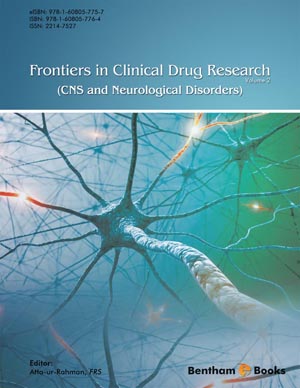Abstract
Alzheimer´s disease (AD) is known to be a neurodegenerative disease manifested as an inability to form new memories. Amyloid plaques and neurofibrillary tangles, formed by deposits of amyloid-β peptide (Aβ) and microtubule-binding protein tau respectively, represent the two neuropathological hallmarks of AD. These lesions mainly accumulate in brain regions known to modulate cognitive functions, such as the hippocampus, septum, amygdala or entorhinal cortex. Recent findings support the emerging concept that optimal network activity in relevant structures for learning and memory requires of finely regulated excitatory and inhibitory neurotransmission. Since these brain structures have dense reciprocal glutamatergic, cholinergic and GABAergic connections, their relationships directly affect learning and memory processes. They have been proposed, as highly susceptible regions to suffer damage by Aβ during AD courseamong other centers of the brain. In addition, increasing evidence have shown that early soluble forms of Aβ, rather than late fibrillar conformations, interfere with neuronal network function and produce an initial stage of synaptic dysfunction; which probably starts 20–30 years before the clinical onset of AD, that could be consistent with the early deficits observed in AD patients. Therefore, Aβ interactions on neurotransmission in memory-related brain systems are critical in cognitive functions and emerge as a pivotal target for drug design studies to improve learning processes and dysfunctions that manifest with age. In this sense, since treatments based on glutamatergic and cholinergic pharmacology in AD have shown limited success, therapies combining modulators of different neurotransmission systems seem to be a more useful tool for the treatment, and overall prevention, of this dementia. Hence, pharmacological strategies to recover the unbalance between excitatory and inhibitory neurotransmitter have to take into account the GABAergic system.
Keywords: Amyloid-β, excitatory and inhibitory neurotransmission, learning & memory, Alzheimer disease.






















